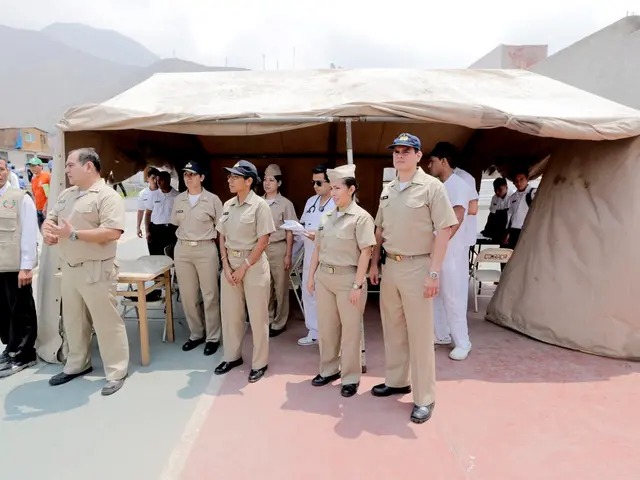Federal Lawsuits Assess Trump's Authority to Implement Tariffs amid Debate over IEEPA Boundaries
The United States Court of Appeals for the Federal Circuit is currently hearing two significant cases, V.O.S. Selections Inc. v. Trump and Oregon v. Trump, which question the validity of tariffs imposed by President Trump under the International Emergency Economic Powers Act (IEEPA).
In both cases, the US government, represented by the Department of Justice, is challenging the rulings of the federal appellate court that declared most of President Trump's tariffs illegal. The government is seeking a Supreme Court review to clarify the president's authority to impose extensive trade penalties under IEEPA.
The tariffs in question have been affecting importers, who are currently subject to duties from Liberation Day and additional tariffs implemented by President Trump. However, if the challengers are successful, importers may seek refunds for the imposed tariffs.
The other case being heard, Oregon v. Trump, is also part of the aforementioned lawsuits. Collectively, these cases are known as "America's big case" by the president. The lawsuits were consolidated on appeal after a three-judge panel at the Court of International Trade sided with both sets of plaintiffs in May.
The Court of International Trade concluded that IEEPA does not authorize President Trump's imposition of tariffs. Following this ruling, the government quickly appealed, and the Federal Circuit Court of Appeals paused the Court of International Trade's order, keeping the tariffs in place for now.
The challengers argue that the president has not identified any unusual or extraordinary threat that warrants invoking IEEPA. Pacific Legal Foundation, a public interest law firm that defends Americans' liberty against government overreach and abuse, has filed a friend-of-the-court brief in the Federal Circuit in support of V.O.S. and the states on behalf of their clients.
Ashley Levine, an attorney at Pacific Legal Foundation, is representing clients in a separate case, Princess Awesome v. Customs and Border Patrol, in front of the Court of International Trade. On appeal, the government argued that IEEPA granted the president broad authority to control and adjust imports, despite no previous president using IEEPA to impose tariffs.
Following oral argument, on August 11, the government filed a supplemental authority notice, bringing the court's attention to trade agreements reached with certain countries. The Court addressed the scope of authority that Congress granted to the president through IEEPA, which allows the president to "regulate... importation" to "deal with an unusual and extraordinary threat" with respect to a "national emergency."
Because the case is being heard "en banc," all eleven active judges of the appeals court participate in the decision. The outcome of these cases could have significant implications for US trade policy and the president's authority to impose tariffs under IEEPA.
Read also:
- ICE directed to enhance detention conditions following NYC immigrants' allegations of maltreatment
- Israeli finance minister issues warnings about potential annexation of West Bank territories
- United States faces rebuttal from South Africa over allegedly deceitful human rights report and assertions of land expropriation
- Accident at Rodalben Results in Injuries; Geoskop Area near Kusel Affected After Stormy Weather




